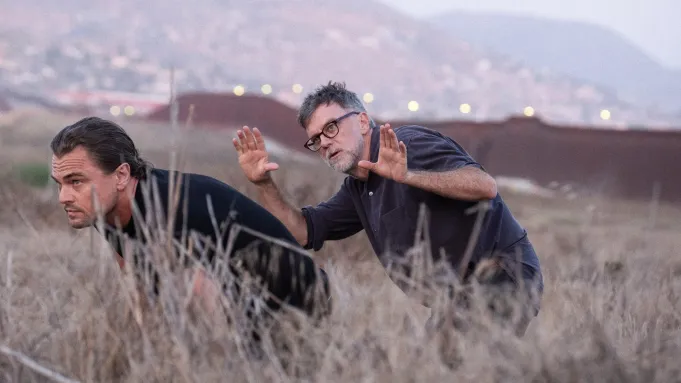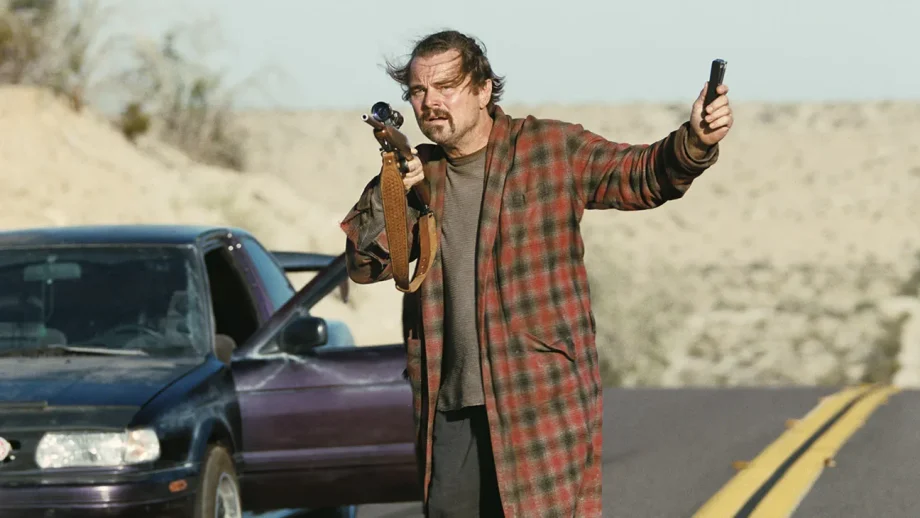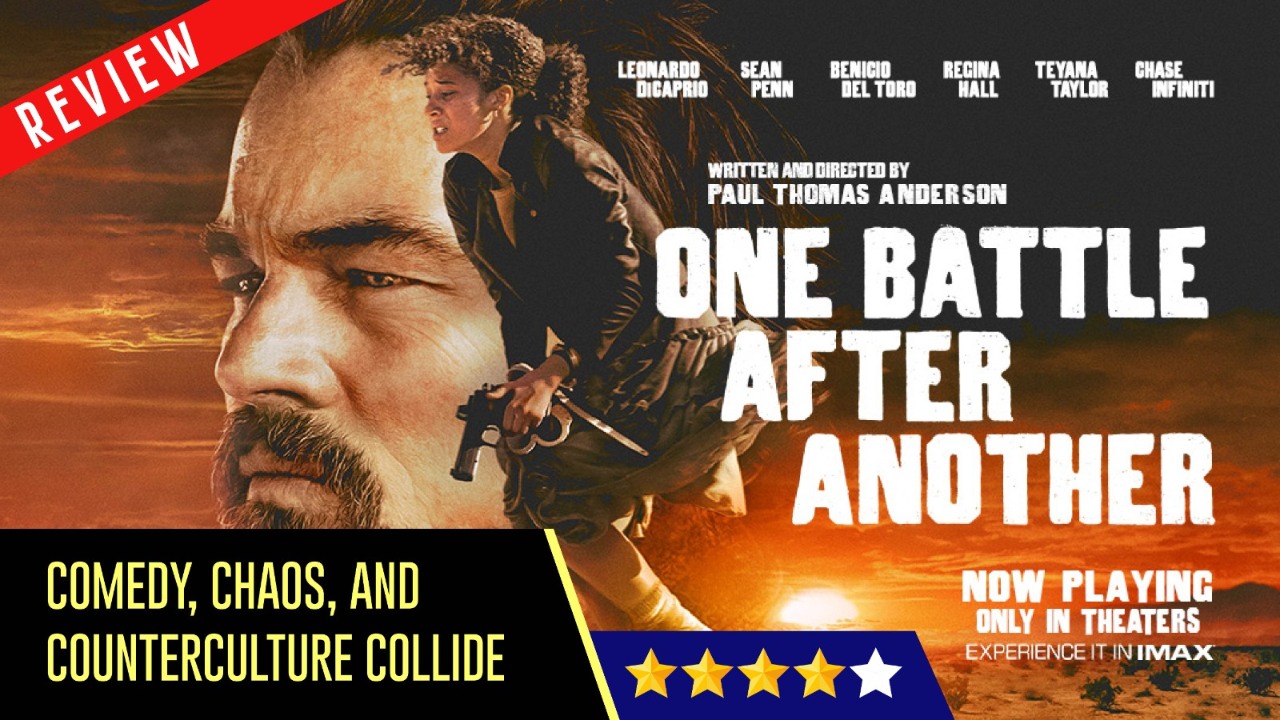There’s a peculiar kind of clarity that comes through chaos, and One Battle After Another seems to know this innately. Paul Thomas Anderson, never one to tiptoe around the edges of genre, swings for something loose-limbed and gloriously off-kilter here — a film as unpredictable as a live wire, with the smirk of a trickster and the soul of a bruised idealist.
Leonardo DiCaprio plays Bob Ferguson, a man well past his prime and possibly his usefulness, holed up in a creaking farmhouse with a head full of weed smoke and half-forgotten political dogma. He’s not exactly hiding — it’s more that he’s sunken into a kind of rural inertia. Life moves slowly. The past does not.

The film opens not with Bob but with history — loud, chaotic, and morally messy. Sixteen years earlier, Bob was part of the French 75, a radical domestic group that didn’t just believe in resistance; they practiced it with guns, explosives, and an absurd flair for the theatrical. The group’s leader, Perfidia Beverly Hills (Teyana Taylor, electric), carries the screen like a threat dressed in gospel. There’s a prison break, a confrontation, a moment of humiliating violence that doesn’t play how you expect it to. It’s not just meant to shock — it unsettles, and lingers.
But Anderson isn’t telling the story of revolutionaries. Not really. He’s telling the story of what happens after — after the smoke clears, after the slogans fade, after the cause gets warped by time and memory. The present-day material, where most of the film lives, is jagged and strange. Bob wanders through old footage, surveillance tape, conspiracy theories, and the mess of his own parenthood. He’s not a man looking for redemption; he’s just trying to keep the walls from caving in.

DiCaprio is, in a word, surprising. There’s no vanity in this performance. He leans into the paranoia, the pettiness, the comic absurdity of a man who once believed he was on the right side of history and now isn’t sure history remembers him at all.
The film looks like it was edited on instinct — fast, then still, loud, then quiet — but somehow it all hangs together. Anderson isn’t aiming for neatness. What he finds instead is something more rare: a story with cracked edges and a beating heart. One Battle After Another is funny, bitter, gorgeous, and strangely tender. It doesn’t ask for agreement. It asks that you stay in the room.

